Quick Read
French AI Startups: Felt Unstoppable. Then Came the Election.
French AI startups had been experiencing a surge of growth in recent years, with numerous companies making significant strides in artificial intelligence research and development. From
Paris
to
Lyon
, and other major tech hubs, these startups were attracting significant investment and recognition both domestically and internationally. Their
innovative solutions
in areas such as
natural language processing
,
computer vision
, and
machine learning
were turning heads and generating excitement in the tech community.
However, their sense of unstoppable progress was abruptly disrupted when a
new political landscape
emerged in the country. With the
election of a new president
came a shift in focus and priorities, leaving many ai startups feeling uncertain about their future.
The new administration‘s
stance on technology and innovation
was unclear, leading to concerns about funding and regulatory support for the sector. Many startups began to
re-evaluate their strategies
, some even considering relocating to more tech-friendly environments.
Despite these challenges, however, there is reason for optimism. French AI startups have a strong track record of resilience and adaptability. They have the talent, the drive, and the potential to continue pushing the boundaries of what’s possible in AI research. And with the right political support, they could once again
flourish
and contribute to France’s growing reputation as a global tech hub.
As the situation unfolds, it will be interesting to see how these startups respond and adapt to the changing landscape. One thing is certain: they are not about to be stopped in their tracks.
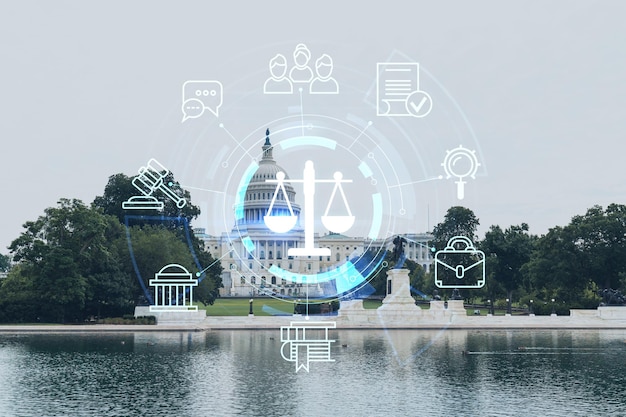
Exploring the French AI Ecosystem: A Thriving Industry on the Cusp of Greatness
France, long known for its rich cultural heritage and intellectual tradition, is now making a name for itself in the cutting-edge field of Artificial Intelligence (AI). In recent years, the French AI ecosystem has experienced remarkable growth, fueled by substantial investments and a surge in research and development initiatives. According to a report by Capgemini Research Institute, France ranks third globally in AI adoption, behind only the US and China.
A Blossoming Ecosystem
With over 1,200 AI startups and more than 650 research laboratories dedicated to the field, France boasts a thriving ecosystem. Major tech companies like Google, Microsoft, and IBM have established a strong presence in the country, adding to this vibrant mix. French universities and research institutions are also at the forefront of AI innovation, with Paris-Saclay University leading the charge as Europe’s largest campus dedicated to science, technology, engineering, and mathematics.
Promising Prospects Before the Election
Prior to the 2022 French Presidential Election, there was an optimistic outlook for the French AI industry. Key political figures, including then-President Emmanuel Macron, expressed their commitment to making France a global leader in AI. Macron pledged to invest €15 billion over the next five years to develop the sector, positioning it as a major priority for his administration.
The Election and Its Impact on the French AI Industry
After the election, it remains to be seen how the new government will continue to support the growth of the French AI ecosystem. The industry awaits further announcements regarding funding commitments, regulatory initiatives, and partnership opportunities with both domestic and international players. Despite these uncertainties, the potential of the French AI industry remains undeniable, with continued innovation and collaboration driving progress in this exciting field.
Conclusion
In summary, France’s AI ecosystem has experienced significant growth over the past few years and holds great promise for the future. With a robust network of startups, tech giants, universities, and research institutions, the country is well-positioned to cement its place as a global leader in AI innovation. Although the election results have introduced some uncertainties, the French AI industry remains optimistic about its prospects and looks forward to continued growth and collaboration in this rapidly evolving field.
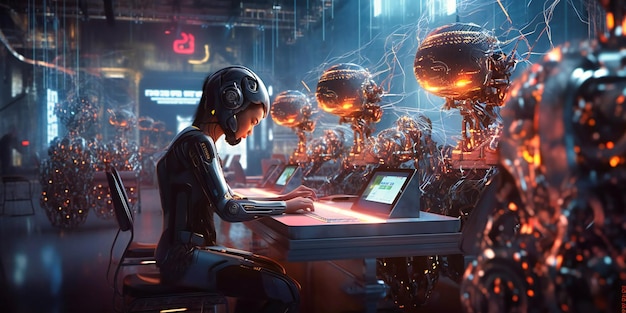
The Rise of French AI Startups: A Closer Look
France, a country renowned for its rich cultural heritage and gastronomy, is also becoming a significant player in the global Artificial Intelligence (AI) landscape. The French tech scene has seen a surge of innovative startups specializing in various AI applications, each contributing unique value to the industry. Let’s delve deeper into three noteworthy French AI startups: Sentient Ascend, Alan, and Zyberia.
Discussion on Specific Startups
Sentient Ascend: A pioneer in computer vision, Sentient Ascend has garnered significant attention with its deep learning technology. This Paris-based startup aims to revolutionize the field of visual recognition and has already made impressive strides in object detection, facial recognition, and semantic segmentation. Their advanced algorithms enable accurate analysis of complex visual data, making them an attractive proposition for industries like automotive, healthcare, and security.
Alan: This chatbot and conversational AI startup, headquartered in Paris, is making waves with its natural language processing (NLP) capabilities. Alan’s AI-powered virtual assistant provides customer support and engagement for businesses across various sectors, including retail, finance, and hospitality. Their business model revolves around offering customizable solutions tailored to clients’ specific needs, ensuring a personalized user experience.
Zyberia: Based in Bordeaux, Zyberia is a cybersecurity AI startup that utilizes machine learning algorithms to protect organizations from advanced threats. Their system learns and adapts to new attack patterns, making it an effective solution against sophisticated cyber attacks. Zyberia’s growth strategy involves partnering with leading security vendors and expanding their client base, particularly in Europe.
Analysis of Their Business Models, Funding, and Growth Strategies
Each of these French AI startups has unique business models. Sentient Ascend operates primarily on a B2B basis, charging clients for access to their advanced computer vision technology. In contrast, Alan‘s business model revolves around offering customized chatbot solutions to businesses on a subscription basis. Meanwhile, Zyberia‘s growth strategy includes partnerships and expanding their client base through targeted marketing efforts.
These startups have also secured impressive funding. Sentient Ascend raised €10 million in a Series A round, while Alan received €42 million in their latest funding round. Zyberia, on the other hand, secured €15 million in a Series A investment.
Description of the Role These Startups Play in the French Tech Scene
These AI startups’ rise in the French tech scene underscores France’s growing importance as a global AI hub. Their innovative applications and success stories attract talent, investments, and attention from both domestic and international stakeholders. Furthermore, these startups’ achievements contribute to the overall growth of France’s tech sector, fostering a collaborative and competitive ecosystem.
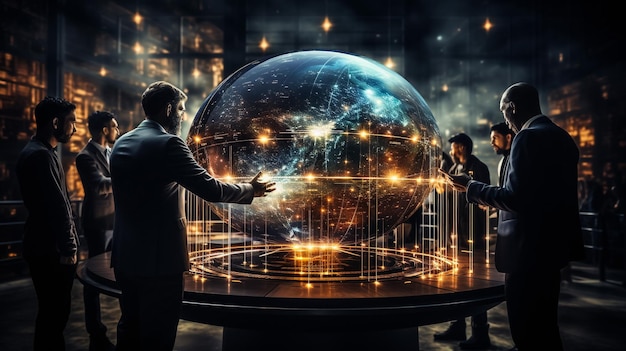
I The Political Landscape: Macron’s Promise to Tech Industry
Emmanuel Macron, the current President of France, has made a promises to the tech industry since his time as an Economy Minister and throughout his presidential campaign. With a background in investment banking and the public sector, Macron has shown a strong commitment to technology and innovation.
La République En Marche!
Macron’s campaign platform, La République En Marche! (REM), emphasized his belief in the importance of entrepreneurship and startups. He advocated for a more agile and efficient administration, one that could compete with the tech-driven economies of Silicon Valley and China.
Make Our Planet Great Again (MPGA) and Digital Republic Agendas
Upon assuming the presidency, Macron unveiled two significant agendas: Make Our Planet Great Again (MPGA) and Digital Republic. The former aimed to tackle climate change, while the latter focused on fostering a tech-driven economy and digital transformation in France.
Attracting Tech Talent, Investment, and Entrepreneurship
Macron’s government has taken several steps to attract tech talent, investment, and entrepreneurship. One of the most prominent initiatives is the creation of “Station F,” the world’s largest startup campus, with a capacity to host 1,000 startups and provide them with mentorship, funding opportunities, and access to corporate partners.
Tax Incentives for Tech Companies and Investors (Article 35-III)
In addition, Macron’s administration implemented tax incentives for tech companies and investors through Article 35-III of the 2017 Finance Act. This measure aims to attract foreign investment by offering a reduced tax rate for companies that invest in France and create jobs, especially in the tech sector.
Macron’s Relationship with the French Tech Industry
During his time as Economy Minister, Macron played a crucial role in shaping France’s tech industry. He worked closely with major players like Alibaba, which helped establish a presence in France, and initiated the “France is Open to Business” campaign. This campaign aimed to showcase France as an attractive business destination, particularly for tech companies looking to expand into Europe.
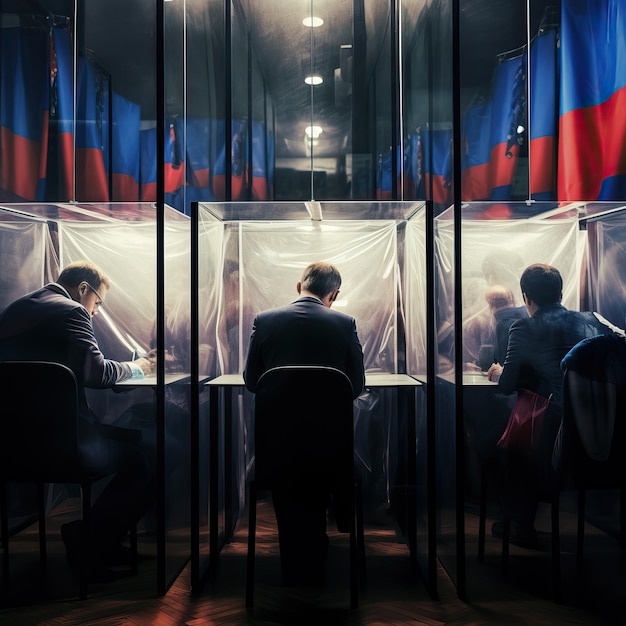
The Election: Uncertainty and Anticipation
As the
2017 French Presidential elections
approached, the political climate was charged with uncertainty and anticipation. Emmanuel Macron, an unknown quantity in French politics, emerged as a formidable contender against the traditional
political parties
and far-right candidates. The former investment banker and economy minister had only formed his political movement, En Marche!, a year prior.
Macron’s competition from traditional political parties and far-right candidates
The established political scene
was shaken as Macron surged in the polls, leaving many wondering if France was ready for a president with little political experience. The
far-right candidate
, Marine Le Pen, who had gained notoriety for her anti-European Union and anti-immigration stance, posed a significant challenge. Traditional parties, such as the
Socialists
and the
Republicans
, struggled to maintain their bases as voters flocked to Macron’s campaign promises of change and reform.
The French AI ecosystem reacts to the election results
The French AI ecosystem
‘s response to the election results was a mix of optimism and concerns.
Startups, investors, and tech industry leaders
were encouraged by Macron’s pro-business stance and his emphasis on innovation. The president-elect’s announcement of a €15 billion investment in digital technology was met with enthusiasm by the tech community, as it could potentially lead to the growth and expansion of AI-related businesses.
Concerns from some sectors about potential regulatory changes or challenges to their business models
However, not all sectors were as optimistic. Some expressed concerns about potential regulatory changes
that could impact their business models, particularly in areas like data privacy and ethical use of AI. The
healthcare
sector, for example, was wary of the potential consequences of increased automation in patient care. As Macron’s administration begins to shape its policies, the French AI ecosystem will continue to watch closely, balancing anticipation with uncertainty.
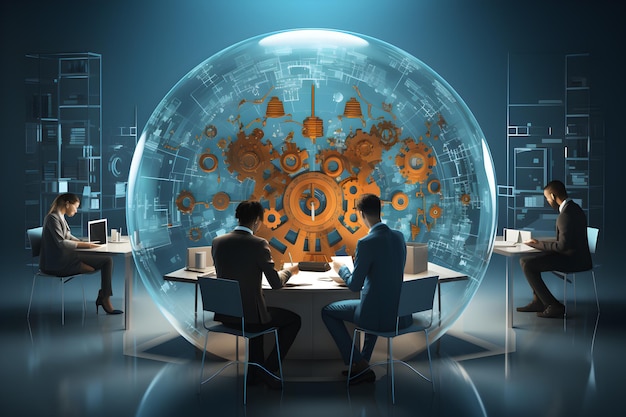
The Aftermath: Challenges and Opportunities
President Emmanuel Macron’s first year in office brought about significant changes to the tech industry in France, with a focus on regulation and policy. One of the most notable actions was the
adoption and implementation
of new regulations such as the
General Data Protection Regulation (GDPR)
, which set new standards for data privacy and protection.
Despite the debates surrounding issues like taxation, data privacy, and labor laws, Macron’s pro-business stance has been seen as a positive sign for the tech sector. The
impact of these changes
on French AI startups has been mixed, with some experiencing remarkable success stories. For instance, there has been an increase in investment and partnerships with international tech giants.
However, these startups also face challenges. For one, there is a degree of
regulatory uncertainty
, as the new rules continue to evolve and are interpreted. Additionally, there is a pressing need for talent acquisition, particularly in areas like AI research and development.
Looking ahead, these developments could have
long-term implications
for the French AI ecosystem. The regulatory environment may continue to shape the industry, as France seeks to establish itself as a leader in this field while ensuring ethical and socially responsible use of AI. Furthermore, the success stories of French startups could attract more investment and talent to the sector, fueling further growth and innovation.
In conclusion, Macron’s first year in office brought about both challenges and opportunities for the tech industry in France, particularly with regards to AI. The regulatory landscape is evolving, and startups are adapting to these changes while seeking to capitalize on the opportunities presented by increased investment and partnerships. The long-term implications for the French AI ecosystem remain to be seen, but the signs are encouraging as France positions itself as a player in this rapidly evolving field.
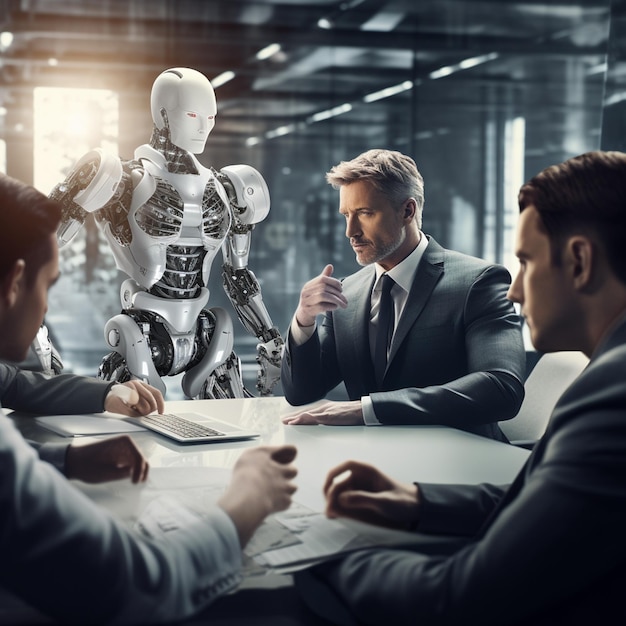
VI. Conclusion
In this article, we’ve explored the current state and future prospects of French AI startups. Beginning with a brief overview of France’s historical context in technology, we delved into the country’s burgeoning AI ecosystem. We discussed key players like Paris Saclay, IDIAP, and Inria, which have fostered a thriving research community. Furthermore, we examined the role of initiatives like
Station F
and
La French Tech
in attracting talent and fostering innovation.
Relation to the Broader Context of the French Tech Scene
The growth of AI startups in France is part of a larger narrative of transformation within the country’s tech sector. Embracing innovation and talent, Macron’s administration has shown commitment to nurturing local startups while also attracting international talent. However, the success of AI companies depends on a range of factors, many of which extend beyond France’s borders.
Potential Opportunities under Macron’s Presidency
With continued investment in AI research, the potential for French startups to thrive is significant. Moreover, efforts to streamline regulations and create a more business-friendly environment may help talent acquisition and international collaboration.
Challenges and Regulatory Uncertainty
Despite these opportunities, challenges remain. Regulatory uncertainty surrounding AI ethics and potential regulations could pose a significant threat to French startups’ competitiveness. Additionally, fierce competition from other countries like the United States, China, and Germany may limit France’s potential growth in this space.
Competing with Global Giants
As we look to the future, it’s essential to acknowledge that French AI startups will face stiff competition from established global giants like Microsoft, Google, and IBM. To succeed, they must focus on niche areas where their unique expertise sets them apart or collaborate with these companies to expand their reach and resources.
